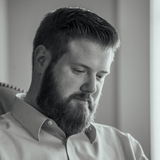The Culture of the Home
Homeschooling succeeds or fails on the parents’ own learning. Children absorb not just lessons but the passion and conviction of their teachers. To raise lifelong learners, parents must become lifelong learners—building a home culture where growth, truth, and knowledge thrive.

Why Parents Must Become Lifelong Learners
Around the Supper Table
Not long ago, I was sitting around the supper table with half a dozen other young couples—families raising children alongside ours, striving to home-school, to cultivate godly character, to homestead, to earn a living, and to serve faithfully in the body of Christ. Many of them shoulder varying degrees of ministry responsibility as well.
That evening, our conversation turned toward the challenges and promises of home schooling. A broad spectrum of experiences was represented at that table. Some had come through public schools and carried regrets from what they had endured. Others had been home-schooled by pioneering parents back in the 1980s and were grateful for the excellent education they received. Still others had grown up in in-between situations—grateful to have escaped some of the worst features of modern education but dissatisfied with how much was missing.
It didn’t take long before we found ourselves asking: What approach to education will most likely yield real results in our children’s lives?
My Own Roots
I was raised in a home-schooling home by parents who were themselves pioneers. They would be the first to acknowledge their deficiencies and shortcomings, yet I remain deeply grateful for the well-rounded education I received.
But if someone were to ask me plainly, “What was the most catalytic element in your education—the single factor that made the biggest difference in shaping whatever success you’ve had?”—how would I answer?
Would I point to home schooling in general? To the church environment where it took place? To the rural lifestyle that supported it? To the curriculum my parents used? All of those played a role, and some were indispensable. Yet none of them alone produced the best results.
Now, after decades of ministry in the unique situation of serving in a congregation where home schooling is universal, and as a father myself of six children ranging from four to sixteen, I’ve reached a fairly settled conclusion: the number one indicator of successful home schooling is the education and attitude of the parents themselves.
This does not mean that parents need a teaching degree to home-school effectively. What it means is that parents will only ever impart—truly and effectively—what they themselves possess with passion and fluency.
Education begins with the parents’ own outlook: their attitude toward knowledge, toward learning, toward growth and understanding.
The Essentials of Education
If I had to name the most critical elements to instill in children, I would begin with communication skills: speaking, reading, writing, and vocabulary. These are the bridges over which every other kind of knowledge must travel.
Beyond that, of course, there must be an adequate grasp of mathematics and the other traditional scholastics. But more broadly, children need a basic understanding of the world—its history, civics, the workings of life, and biology. They don’t need fluency at advanced levels, but they do need awareness of the pivotal event constellations that shaped their world, the powers that govern it, and the basic scientific and physical realities that define it.
Combine these broad themes with strong communication skills, and you’ve given a child the foundation to learn whatever else he will need as an adolescent and adult.
When Life Becomes the Classroom
Will you afford me a side trip digression while I try to demonstrate the style of educating that I'm recommending ?
My father often said, “The classroom is a life.” I see it proven again and again, especially when parents have truly internalized the truths and frameworks they want to impart. When that happens, learning flows naturally, and children often gain more in those organic moments than they ever could through a textbook.
Take a simple example from a family road trip last week. My eight year old asked how he could buy land. I explained he would need money. Then came the next question: “How do I make money?” That became an opportunity to introduce him to the basic principles of economics. I explained how wealth is built by adding value: a bag of wheat berries can be ground into flour, the flour baked into loaves, the loaves sold as sandwiches—each step multiplying the value until, under the right circumstances, that bag of grain is worth hundreds of times more than it was at first.
The older children joined in because they remembered earlier discussions around the living room about free markets, socialism, and government interference. Of course, I keep these talks simple enough for young heads to follow—but they get it. And because I’m passionate about stewardship—of resources, finances, and opportunities—it comes alive for them. That day, my son sketched out his own small-business idea in the back seat, full of energy and possibility.
Another night this past week, my daughter Aviva mentioned a children’s book that recounted flood legends. That opened the door for me to share how at least eleven ancient civilizations preserve stories of a great flood, with strikingly parallel themes: a world covered in water, the salvation of a single family through a vessel, repopulation afterward, and a rainbow. From there, we moved into how the Bible gathers all those shared threads into one coherent whole, reinforcing its truthfulness.
That led naturally to questions about the written word itself—when it arose, how it spread, and what it means for the reliability of Scripture. I shared how phonetic writing almost certainly drew from Egyptian hieroglyphics, and how the earliest Paleo-Hebrew inscriptions trace a line from Egypt, across Sinai, into Canaan. Remarkably, some of those earliest inscriptions are not lofty decrees but simple directions—fathers teaching sons where to water the goats—etched into the rocks of the desert.
This was revolutionary. Writing, long controlled by the Egyptian priestly class, was suddenly breaking free into the hands of ordinary people. And it happened just as God was commanding Israel through Moses: “Teach these words to your children. Write them on your doorposts. Speak of them when you rise and when you lie down.” Writing and literacy were no longer the preserve of an elite—they were becoming the inheritance of a whole people.
I also explained how the earliest Phoenician inscription using phonetic writing appears on the sarcophagus of King Ahiram of Byblos. This connects directly with the alliance the Bible speaks of between Solomon and King Hiram, and even with ancient Jewish tradition, which records: “God gave grammar to Moses, and he taught it to the children of Israel. Solomon gave it to the Phoenicians, and the Phoenicians to the Greeks.”
So, in one conversation, we discussed ancient civilizations, the Noahic flood, Biblical textual criticism, and I sketched out at least a compelling framework for considering phonics was actually developed through the Hebrews and not the Phoenicians.
What am I saying with all this? Simply this: the most vibrant and lasting education does not come through a sterile textbook. It bubbles up from passion. It flows through parents who are immersed in truth, alive with conviction, and eager to share what they’ve discovered. When life itself becomes the classroom, children don’t just learn facts—they inherit a way of seeing the world.
When Parents Feel Inadequate
But what happens when parents themselves begin home schooling without having been well-educated? What if their grasp of history is shallow, or their writing skills are an embarrassment to them?
The first thing I always emphasize is this: get help. Surround yourself with grandparents, aunts, uncles, neighbors, brothers and sisters in the church, and certainly the resources of your home-school program. Let others step in to supplement the areas where your children might otherwise lack.
My sister Amanda recently described one of the most fruitful years of home schooling she ever witnessed in our church context. She and several mothers formed a cooperative where each taught according to her strongest gift. The one most proficient in math taught math for all the children. The one most gifted in art taught art. The one strongest in language skills taught language. In this way, each subject was handled with competence and enthusiasm, and the children thrived.
Still, every parent wants to grow more adequate in educating their own children. So what do you do when you feel the weight of your shortcomings?
Why Self-Education Matters
I do not believe it is sufficient for parents to educate themselves only to the point of teaching their child’s current curriculum. In other words, it is not enough to learn Johnny’s fourth-grade writing course just well enough to guide him through it. That’s not true education.
You cannot effectively teach what you don’t know deeply, what you don’t possess with confidence and passion. Jesus said it clearly, “A student cannot be greater than his teacher. It is enough for the student to be like his teacher.”
Children will inevitably learn what their parents are passionate about and what they are truly competent in. They will not learn what their parents only half-understand or secretly dread.
Imagine asking someone who can’t fry an egg to teach a cooking class. No matter how good the cookbook in their left hand, the result will be little more than farce. Unless the teacher possesses both skill and familiarity, the students will not be truly taught.
If a parent cannot rise above the book, then it is better simply to give the child the book—and let someone else teach.
The Solution: Parents Must Become Learners
The real solution is simple, though not easy: parents must educate themselves.
If you want your children to love learning, then you must love learning. If you want them to master history, literature, science, or math, then you must study those subjects yourself. When parents become enthusiastic learners, their children will absorb far more than lessons; they will absorb a culture.
No, parents cannot master every subject overnight. But they can begin with honesty. Identify the areas where you are strong and the areas where you are weak. Then systematically set about strengthening the weak ones.
I go back to the conversation around my supper table. During the discussion, one mother looked pensive and challenged me, “So while I’m learning these subjects myself, do I not teach my children in the meantime?”
“No,” I answered. “That’s not what I mean. Of course you teach them. But you also get help—grandparents, neighbors, cooperatives, tutors—for the areas where you are still weak. And while your children are receiving help, you yourself begin a systematic journey of self-education.”
Practical Examples
I encouraged her: pick one subject you feel utterly inadequate in, perhaps writing. Then find someone—an empty nester, a widow, a neighbor—who excels in that field. Ask if she would be willing to correspond with you, a letter a week, coaching you in the basics.
If you commit yourself with faith and vigor, in less than six months you’ll be astonished at how much you’ve grown. And once you’ve gained competence in writing, you’ll have acquired the tools and confidence to do the same in history, then in science, then in mathematics.
Perhaps the father excels in one area while the mother excels in another. Let them divide responsibilities. But let neither excuse themselves from growing.
Home schooling will only work if there is a culture of adult learning in the home. Parents must believe it matters, must care deeply, must themselves pursue knowledge with passion.
The Home as a Culture
Our homes are not neutral spaces. Every home has a culture. The culture emerges through an agreement between the two parents about what is most valuable.
Think about it: whatever you consistently give your time, energy, conversation, and passion to—that becomes the measure of what is truly valuable in your home. And your children will absorb those values as naturally as breathing.
If your family believes in beginning the day with prayer, then that shared conviction shapes a spiritual awareness in your children. If your family insists on breaking bread together every evening, shutting out phones, excuses, and distractions, then you are building a communal rhythm into the fabric of your household. If your family esteems books and learning, then shelves will fill with volumes, birthdays will feature new books as gifts, and evenings will be punctuated with story times.
The point is this: agreement between the parents about what matters most becomes the culture of the home, nurturing the future of your children.
This progression is simple but profound:
- From vision, we define goals.
- And our highest goals reveal our true values.
- From values, we shape culture.
- And from culture, we raise men and women fit for the kingdom of God.
It all begins with clarity—being honest about what you are trying to accomplish in your children’s education. Then comes humility—being honest about your own strengths and weaknesses. Then comes courage—seeking help where you fall short and committing yourself to learn.
The church, too, must foster a culture of adult education. Parents who pursue growth together will shape congregations that model lifelong learning. And children raised in such an environment will see their parents not as stagnant authorities but as fellow pilgrims, ever learning, ever growing.
A Word of Encouragement
Some may feel overwhelmed by this challenge. But take heart. Don’t attempt everything at once. Pick one subject. Apply yourself diligently. Others have learned new languages as adults and gone on to teach them at universities. If they can do that, you can certainly master writing, history, or science well enough to guide your children with confidence.
What matters most is conviction—knowing why you are learning and believing that it matters. With that conviction, progress is inevitable.
A Testimony from Experience
At the table that night, one of the fathers shared his story. He and his siblings were home-schooled while their mother pursued a master’s degree in the philosophy of education. Because that was her passion at the time, it filled their home. She read those books. She discussed those ideas. And as children, they absorbed a surprising degree of familiarity with authors, themes, and concepts, far beyond their years.
The lesson: sometimes your own learning journey—far from compromising your kids’ education—can actually enhance their learning better than if the subject were old hat for you. They will catch your enthusiasm. They will inherit your hunger. They will grow simply because you are growing.
In Summary
The culture of your home will ultimately be the measure of what you, as parents, value most. Don’t be deceived—you cannot hope to take your children higher than you are willing to go yourself. Beyond the first few grades, it will not prove sufficient to merely stay one step ahead of their textbooks. You must become a student again. And in the areas where you cannot, you must humbly seek help.
But when you do—when you grow to the point of speaking with competence, conviction, and passion—your children will absorb not only the knowledge you carry but the fire with which you carry it. Whether in grammar, math, history, biology, or even philosophy of education, they will learn what you know well and care about deeply.
And in the end, it will be enough—as Jesus said—for the student to be like his teacher.





